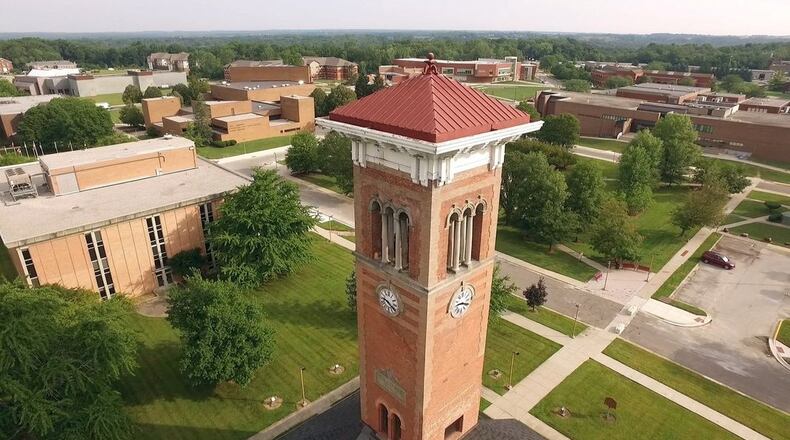The U.S. Centers for Disease Control (CDC) does not currently recommend testing all incoming college students. Fall semester classes have started at Wright State University in Fairborn, without mandatory or random testing.
“But here’s the thing,” Mathews said in an interview Friday. “We look at our population which has certain vulnerabilities and risk factors, given the demographics of our students. And we’ve also learned from the experience of other universities that have opened earlier than ours. And based on that, we opted to go ahead and do some more aggressive testing.”
The University of Dayton, a private institution, has had 380 active COVID-19 cases as of Thursday, according to the campus’ regularly updated status board. Some students are isolating on or off campus, and UD has shifted to remote instruction.
“This is a huge mass volume of testing at one time,” Mathews said. “Some universities have done testing over a series of days -- maybe 200 or 300 per day, that sort of thing.”
“It is a big job,” she’s added. “It takes a lot of logistics.”
National Guard personnel will help with those logistics, she said.
Some early arrival students have already been tested.
To allow time for test results to come in, the first week of instruction at Central State will be remote, Mathews said.
There is no “perfect solution” to the ongoing problem of the pandemic, she said. A single test is only one snapshot in time, and some recurrent testing will be necessary at some point, she said. Asymptomatic students may unknowingly infect others, so social distancing, frequent hand-washing and masks will be crucial, she added.
“But we wanted to get a baseline (of testing data) to help drive our further strategies,” the doctor said.
Students found to be positive for COVID-19 will be isolated on campus, with buildings designated for short-term isolation. In some cases, the entire span of isolation may have to be on campus, in situations where the student is international or is unable to be picked up by family.
Students will also be expected to sign “a campus agreement or pledge” emphasizing the importance of public health recommendations.
“The testing is a component of our plan to prevent the spread,” Mathews said. “We don’t want people to start feeling comfortable or complacent because they got a test at a point in time, and the test was negative.”
In the 2018-19 academic year, Central State had a population of about 2,000 students, according to U.S. News and World Report.
"
About the Author

